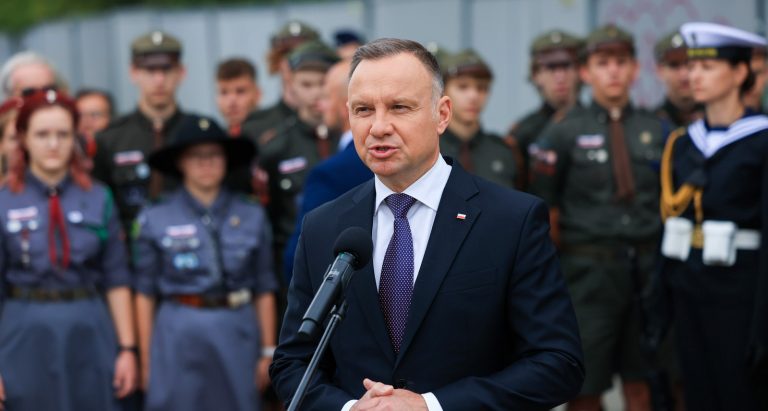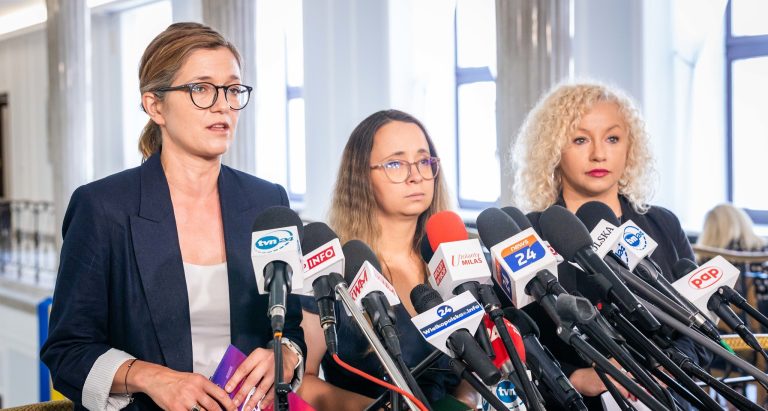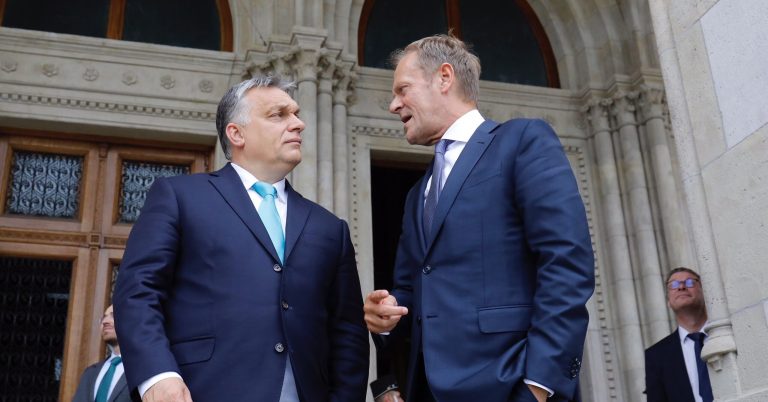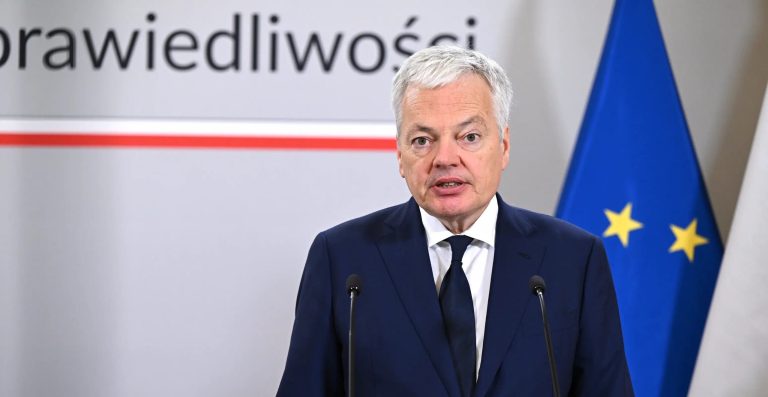Poland asks Germany and France for help policing Belarus border
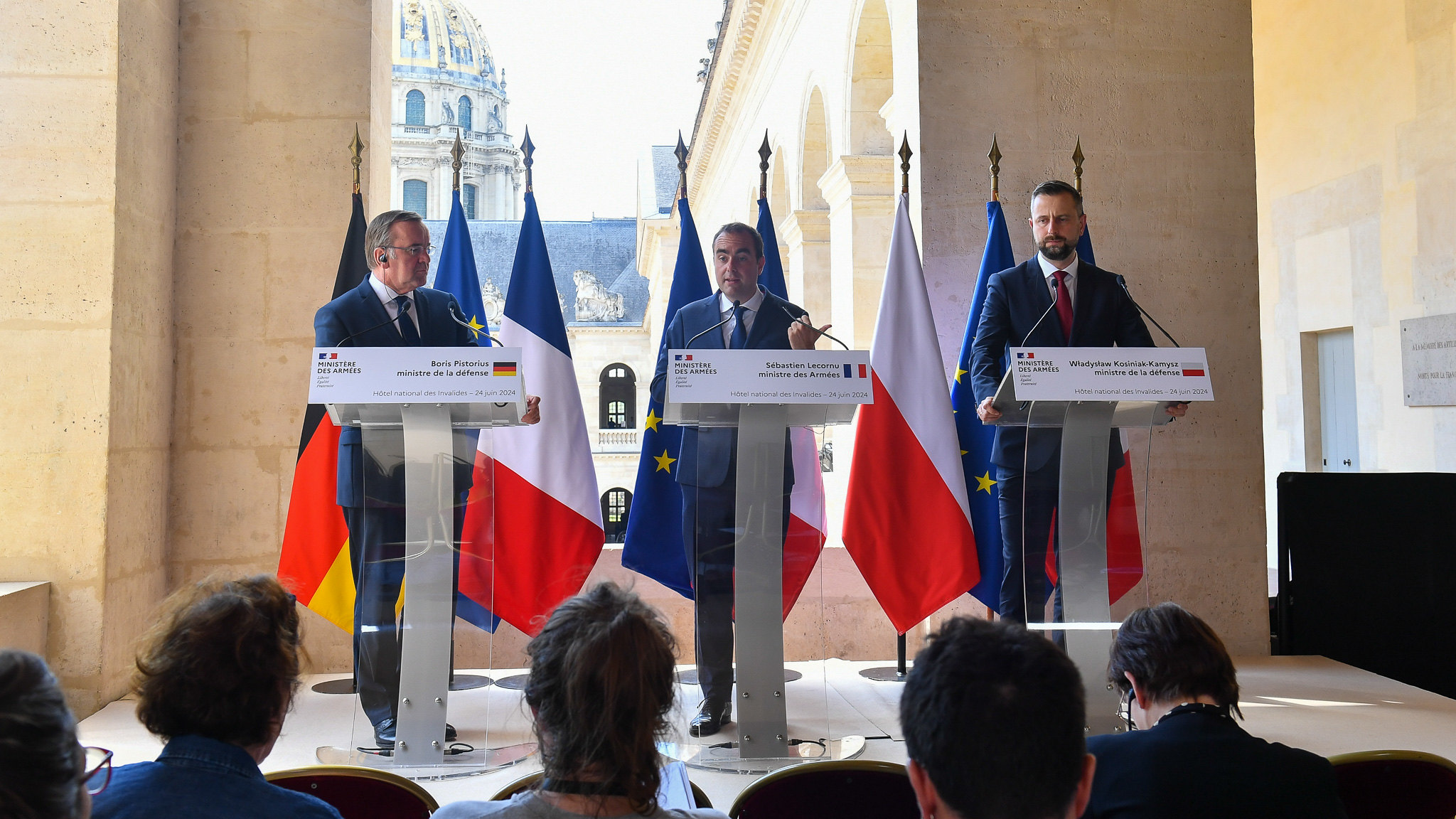
Poland has asked for support from German and French police and border guards to protect Poland’s border with Belarus amid an escalation of the migration and security crisis there.
“I have asked for support in this area – not military support, but police support and border guard support,” Poland’s defence minister, Władysław Kosiniak-Kamysz, said on Monday following a meeting in Paris with his German and French counterparts. He did not specify what kind of support had been requested.
“We are struggling with a huge problem – not a migration problem, because today there are no migrants on the Polish-Belarusian border, there are people attacking Polish soldiers, policemen and border guards. They are trained for this,” Kosiniak-Kamysz told the Polska Zbrojna website.
“This is a hybrid, organised action against Western civilisation,” continued the minister. “It would be very good if our allies from the European Union and NATO took responsibility for border security, to the extent possible.”
Zakończyło się pierwsze od 10 lat spotkanie ministrów obrony państw Trójkąta Weimarskiego na którym podjęliśmy konkretne decyzje:
1️⃣ Odbędą się wspólne ćwiczenia wojsk 🇵🇱🇫🇷🇩🇪 na terytorium RP;
2️⃣ Francja zdecydowała o przystąpieniu do naszej inicjatywy dotyczącej mobilności…
— Władysław Kosiniak-Kamysz (@KosiniakKamysz) June 24, 2024
Since 2021, tens of thousands of migrants – mainly from the Middle East, Asia and Africa – have tried to cross into Poland with the encouragement and help of the Belarusian authorities.
Recent months have seen a surge in attempted crossings and also attacks on Polish officers, in one case resulting in the death of a soldier. The Polish government has blamed Russia and Belarus for orchestrating that aggression and has increased security measures at the border.
However, in an interview today with the Gazeta Wyborcza daily, the deputy speaker of the Senate, Maciej Żywno, who comes from the ruling coalition and regularly visits the border as a volunteer rescue worker, said that there are also still genuine migrants at the border, including families with children.
There, “people trapped in a cage between the Polish fence and the Belarusian ‘system’ do not understand hybrid war, they do not understand smuggling rings, they [just] want to survive and save their children”, said Żywno.
Maciej Żywno: Rozmawiałem z uwięzioną na granicy afgańską rodziną. Nie rozumieją wojny hybrydowej, chcą przeżyć, uratować dzieci #wyborcza https://t.co/JR0tL3fY9E
— Gazeta Wyborcza.pl (@gazeta_wyborcza) June 25, 2024
Kosiniak-Kamysz said that during yesterday’s talks in Paris – held under the aegis of the so-called Weimar Triangle made up of Poland, France and Germany – the trio had reached three agreements relating to the broader security situation in the region.
The first was to hold joint military exercises in Poland next year. The second was to jointly “expand mobility activities”.
The latter will involve France joining an initiative agreed by Poland, Germany and the Netherlands in January to create a “military transport corridor” that would allow troops and equipment to move more easily through their territories.
“There is no effective defence today without mobility,” said Kosiniak-Kamysz. He added that the third issue the trio had agreed upon yesterday was continued support of Ukraine, including “through the transfer of equipment”.
Pour la première fois depuis 2015, réunion des ministres de la défense 🇫🇷🇩🇪🇵🇱 en format « Weimar » avec Boris Pistorius et @KosiniakKamysz.
La défense de l’Europe a besoin de notre convergence : soutien à l’Ukraine, exercices communs, mobilité militaire, projets capacitaires,… pic.twitter.com/GLxPSmOkat
— Sébastien Lecornu (@SebLecornu) June 24, 2024
Notes from Poland is run by a small editorial team and published by an independent, non-profit foundation that is funded through donations from our readers. We cannot do what we do without your support.
Main image credit: MON/X

Alicja Ptak is senior editor at Notes from Poland and a multimedia journalist. She previously worked for Reuters.

